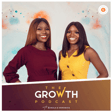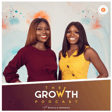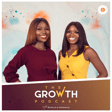
The Influence of Relationships, Navigating Crossroads and Embracing Learning with Emeka Afigbo
In this episode, Bukola engages in a conversation with Emeka Afigbo, a Senior Director at Okta with past experiences at both Meta and Google. Emeka delves into his early years in Nsukka, Nigeria, and recounts how he embarked on his tech journey by teaching himself to code on paper, as he couldn't afford a laptop at the time. He emphasises the pivotal role that relationships played in his career success and underscores the importance of being deliberate in nurturing them. Emeka also discusses the the conundrum faced when navigating a crossroad. You can read his article on this here. His journey is undeniably inspiring, and we hope his story serves as a source of inspiration for you as well.
------------------------------------------------------------------
We now have the visual version of the episodes available on YouTube. You can watch it HERE
------------------------------------------------------------------
Want to appreciate us for the learnings you have taken away from this episode? Rate us a 5-star ⭐️ and leave us a honest review.
------------------------------------------------------------------
Follow Emeka on LinkedIn
------------------------------------------------------------------
Follow Bukola on LinkedIn, Twitter and Instagram
Follow Veronica on LinkedIn Twitter and Instagram
Follow Growdiance on LinkedIn, Twitter and Instagram
------------------------------------------------------------------


